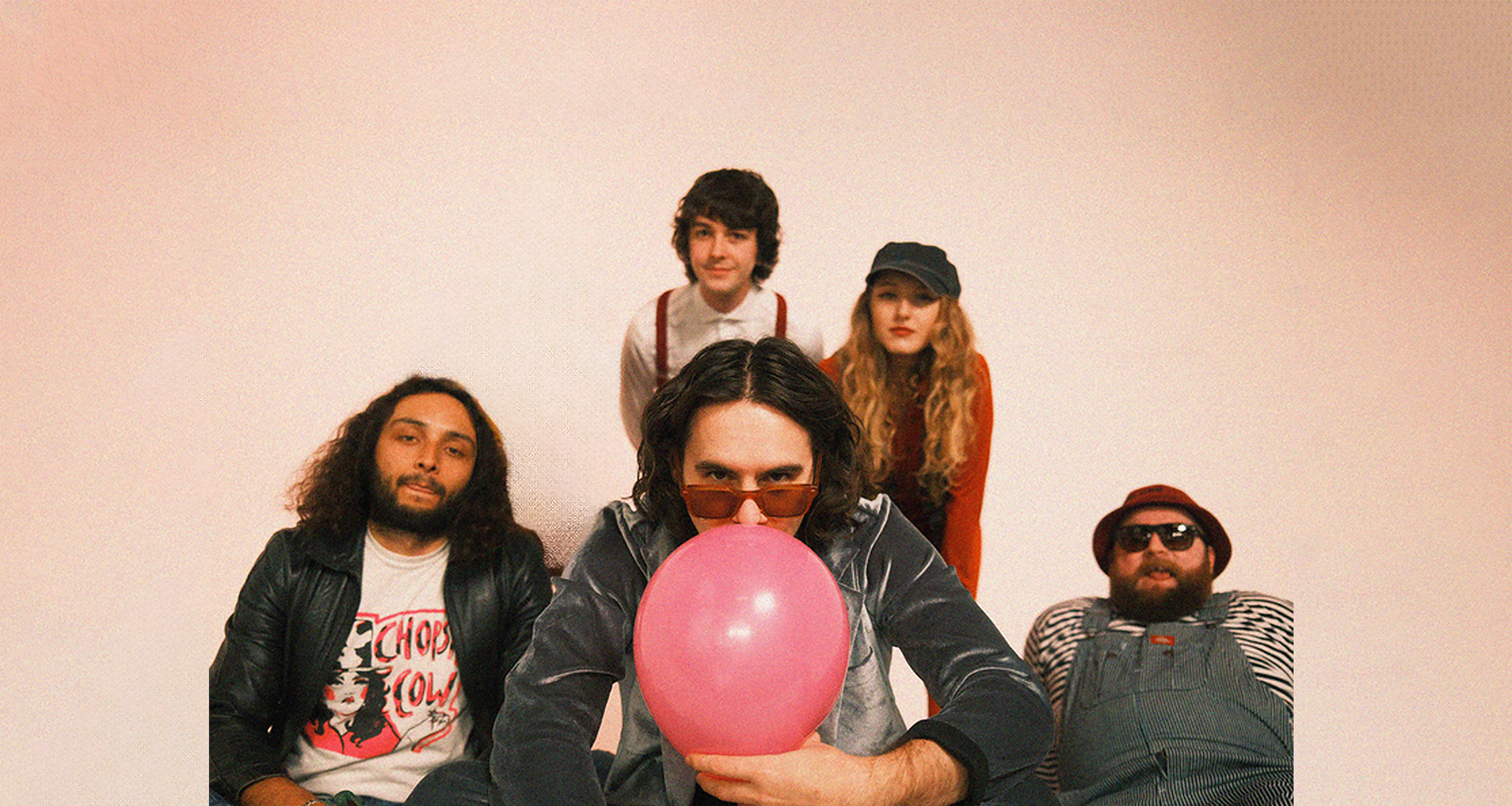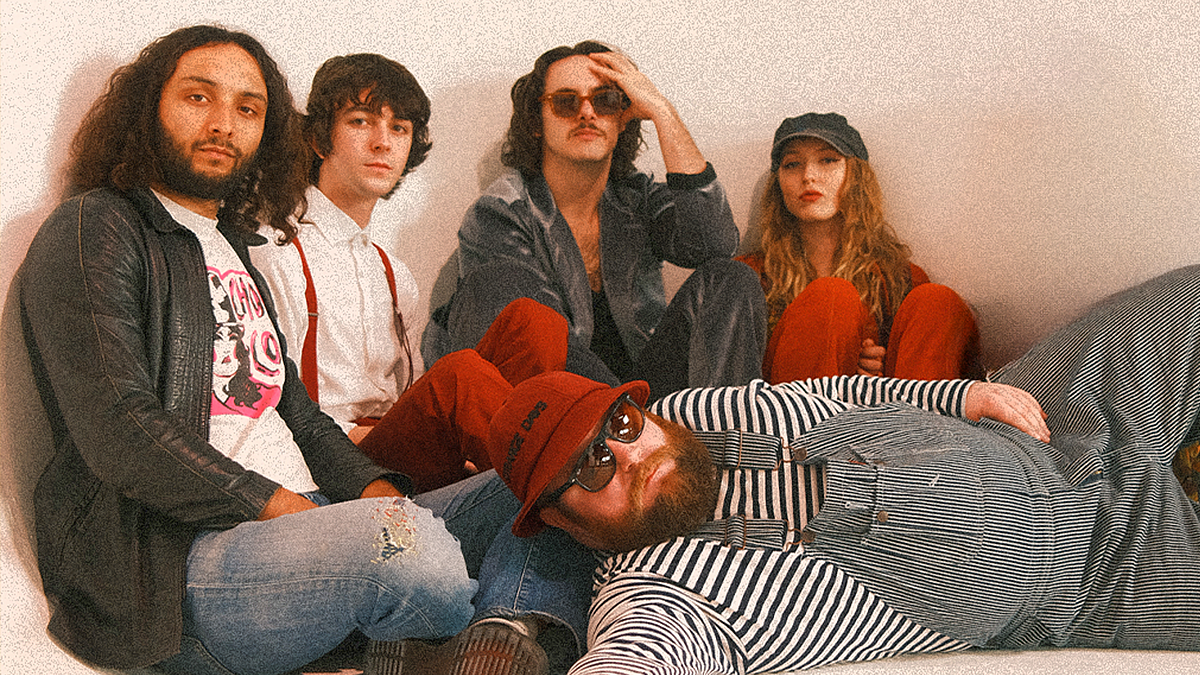
We often say the music scene is pure chaos, but few bands embrace the absurdity of the hustle with as much good humour as Pigeon Wigs. Full disclosure: as fellow Welsh natives, we may be partial to the band, but in this case, the interview was personal. With Harry being a dear friend, it only felt right to reach out and sit down with the lads to catch up on everything that’s been going on—from their uncompromising sound to their hilarious, frank take on the music industry.
The Cardiff-based band Pigeon Wigs is a testament to the power of accidental friendship, shared musical influences, and the sheer audacity of deciding to write an album like Exile On Main Street "just for the heck of it." What started as a casual project between two friends has rapidly evolved into one of the most exciting acts on the UK circuit, defining their sound with honest lyrics and a raw, performance-driven energy.
We sat down with core members Harry and Louis to discuss their new music, their creative philosophy, and the frustrating realities of being a working band in the digital age.
For both Harry and Louis, the musical path was less about discovery and more about unavoidable "indoctrination."
Harry credits his family: "My dad played in a covers band when I was growing up and I slept behind the drum kit many times." His brother started buying him an album a month when he was 11, solidifying his early musical foundation. It was the timeless artistry of The Beatles that "really kicked off my desire to write my own music."
For Louis, it was a band that defined an era: The Strokes. "They just seemed like a really cool gang that I would’ve loved to be a part of," he says, noting they were the band that made him want to be in a band himself.
The band itself formed out of a friendship that wasn't initially musical. Louis recalls meeting Harry through their girlfriends and spending years just "playing PlayStation and going to parties." It was Harry's girlfriend who suggested they write some tunes, and it evolved from there, never intending to be a band, but simply "for the heck of it." Then, Louis recalls, "Harry wanted to write an album like Exile On Main Street, and I was like yeah why not, I’m something of a Stones mega fan so was well up for it."
When it comes to influence, attitude is key. Louis is heavily inspired by Keith Richards' "attitude and style" and his "passion he has for writing bangers." For Harry, the inspiration remains the foundations of early life—The Beatles and having his own family writing, which is why his music "even now leans 'Beatlesy' every other song."
Louis describes their initial sound as "basically just copying the music we love," acknowledging that their first record is "a love letter" to those influences. However, they are now pushing past that. Louis says they are "more confident in sounding like ourselves," a sentiment Harry echoes: "The first record is a love letter and this new one is a declaration."
The band’s lineup was completed in chaotic fashion. Louis met Tom (other guitarist) playing in cover bands across South Wales, and he asked Erin to join "on a drunken night in the Moon Club." As for Phil? "I’m not sure, I think we found him as a stray on the streets of Cathays the poor bugger." Harry notes that after the first EP, they found their full-time members by "setting traps along Womanby Street," advising that "All you need is a White Stripes record, a large box, a stick and some string."
The songwriting process is a harmonious blend of individual strengths. Louis usually starts with a riff—an A and B section—and sends it to Harry. Harry then builds the track, often by "singing a riff or something into my phone," before adding a verse or chorus. They eventually meet up to "finish it off in a haze to the point where I’m not sure who came up with what." This collaborative flow, where "ones weakness is the other’s strength," quickly yielded enough material for a record before they'd even played a single show.
On stage, the band members wear very different "hats":
Louis embodies the cool, detached performance of Bob Dylan, giving "zero f***s given about 'performing'."
Harry takes the opposite approach, channeling frontmen like Bowie and Jagger, embracing the required theatricality of being on stage. He feels performing "definitely helps me 'perform'."
Their favourite song to play live is "Paper Tiger," which Harry loves because it features a drum solo where he can just "sit back and watch a man in his element," as he has "no idea what Phil’s gonna do." Louis's favorite is "Plumpy," a "bit of a foot tapper" that "always goes down well" and gets the people going.
Their live highs and lows are equally vivid:
Best Gig: Both agree it was Green Man Festival. Harry remembers the crowd being "massive, just a sea of people," a feeling he's "been chasing ever since."
Worst Gig: Harry's worst was doing open mics around Cardiff at age 16, where the audience "consisted of the promoter and my family and they didn’t even clap. Come on guys." Louis’s worst was a show in London, specifically Finsbury Park, where the venue did "zero promotion" and had "a total bellend" sound guy. Louis found the lack of footfall promotion "insane."
Pigeon Wigs is clear-eyed about the realities of the modern music hustle.
On Streaming: Both members are deeply critical. Louis says, "If people actually paid the artist for money maybe the industry wouldn’t be utterly s**t right now." Harry laments spending "countless thousands" to record and release music, yet never seeing a penny from streaming. He points out the absurdity of having a career "based on an app that is controlled by billionaires who want to f**k you." Louis even calls out the ethical implications: "We use Spotify as a metric to judge bands... but by using Spotify we’re literally funding a billionaire who is investing in AI attack drones, am I losing my mind or is that tapped?"
On Social Media: Louis finds it a "total pain in the arse," feeling artists now have to be "content creators." Harry sees it as a double-edged sword: "It’s easier to get music out there but you’re just one in the flood," and the pressure to "make stupid videos" is ridiculous.
The Solution: Their messages to fans are direct: Louis says, "Buy merch you cunts, we’re frickin dying over here." Harry's is more poetic: "Whoever keeps texting me telling me you’re edging to our music please keep it up, I look forward to it every week. In all honesty we’re so lucky to have any of you, expect a nude photo of me in your letterbox as a thank you."
Aspirations and Final Words
The best advice they've been given reflects their grounded approach: Louis says, "Follow your gut and write bangers." Harry advises, "Have thick skin and don’t be a prick."
If they could open for anyone, Louis says Oasis because "their fans buy merch, maybe we could sell a bunch too." Harry chooses “King Gizz”, calling them "class" and saying they "seem like good guys too." As for a dream collaboration, Harry names Early 70s McCartney or Robert Johnson ("to see if he really did sell his soul"), and Louis chooses Willie Nelson, calling him "just a legend."
What’s Next?
New singles and an EP are coming out on Spotify soon. The first single of the new record is out, and they promise "more in the near future and possibly our best music video to date." They have shows dotted around the country, with a release show for their home lot yet to be announced.





